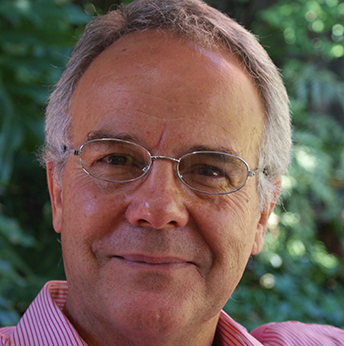The thinking of the Scottish philosopher, David Hume, gave impetus to atheism and the Enlightenment in the 18thcentury. Today, his thinking is still appealed to by those who attack belief in God. One of the issues Hume attacked was the existence of miracles, which of course, has relevance for the Christian understanding of the resurrection of Jesus. Hume expressed his convictions about miracles in Section X which he added to his book An Enquiry Concerning Human Understanding.[1] He had omitted this section earlier for fear of upsetting religious people. Section X “On Miracles” has also been published as a separate book.[2]
Hume defines a miracle as, ‘a transgression of a law of nature by a particular volition of the Deity, or by the interposition of some invisible agent.’[3] The term ‘transgression’ is an emotionally loaded word, and it is likely that its use was not accidental. It was probably chosen because he wanted to sow the idea that miracles constituted an indefensible breaking of the rules. In other words, this may be a case of vocabulary betraying preconceptions.
A definition that conventional Christians would be happier with (and which would be less unfriendly) is this: A miracle occurs when God superimposes his greater authority on the existing authority he has given expression to through the natural laws of nature.
Hume says, quite reasonably, that if there is any probability that the person giving witness to a miracle is deceived or is not speaking truthfully, then he or she should not be believed.[4]Whilst this is indisputably so, this is a conviction that neither proves or disproves the existence of miracles. Hume seems to suggest that it does, for he says that because there is no natural explanation for miracles, they don’t exist. However, this is not a logical conclusion. The very definition of a miracle is that it is something unnatural, but this quality does not disprove their existence.
Some care needs to taken over what is meant by the term “natural”. If God exists, he is under no obligation to be constrained in what he does so that he only does those things that appear natural to us. The reality is: if you allow the existence of God, everything changes, and miracles are no longer impossible.
We need to ask, then, whether it is reasonable to believe in the existence of God.
I think it is. Evidence for the existence of a “supreme mind” is seen in our universe being fine tuned to the level of many trillionths of a degree so as to allow life. One of those convinced by this, was the English philosopher, Anthony Flew. Flew gave the intellectual lead to atheism in the mid-late twentieth century. The relevance of this is that as an atheist, Flew wrote an introduction to Hume’s booklet Of Miracles.[5]However, later in life, Flew saw evidence of a “divine mind” in the fine tuning of the universe, and this convinced him of God’s existence.[6]
Acknowledging that God exists is massively significant in the debate about miracles. It does so because it introduces an agent that exists beyond the constraints and understandings of human beings – an agent that could be responsible for miracles. This means that whilst miracles involve an overriding of the normal laws of nature, this may not be abnormal to God. To him, it could be, and probably is, perfectly normal. Indeed, it would be strange if God did not superimpose his sovereign will in an event important to the plans he has for creation.
An uncomfortable reality faces all atheists, and because it is uncomfortable, atheists try to downplay it and dismiss it by any means possible. I refer to the miracle of the universe’s actual existence. Not only does a universe exist, but there now seems to be a steadily growing consensus amongst scientists that our planet is the only one with intelligent life on it. It has to be said that this conviction is hugely supportive of belief in God.
By any measurement, the universe is miraculous. If it came from nothing, as a result of nothing, it is miraculous. If it has always existed and propagated itself without reason or cause, it is miraculous. And if it came into being because of a divine mind, it is miraculous.Whatever the cause, it is miraculous. The significance of this, of course, is that if you admit to one miracle… then you have to allow for the possibility of others.
Sadly, there have been many frauds and delusions surrounding claims of things miraculous. Such claims have bedevilled Christianity throughout history and have sometimes brought the Christian faith into disrepute. Whilst this is so, conventional Christians have no problems with the concept of miracles – the resurrection of Jesus from the dead, being a peerless example.
This brings us to a point that is often overlooked when discussing miracles. It concerns how well a miracle, such as Jesus’ resurrection, fits into a broader narrative.
The miracles that occur in the Bible do not appear haphazardly. They don’t blaze for a short time in the night sky like a soon-to-be-spent firework. They always appear as part of a larger story. This means that Christian miracles make sense when they are in synch with a grander narrative, a narrative that can be forensically examined historically, morally, scientifically and experientially.[7]
Hume ends his Section X “Of Miracles” by giving one last reason why he believes divine miracles don’t exist. He says that all religions have miracle stories, and it wouldn’t be right to accept the miracle stories of one religion and not another. This leads him to say that as all religions contradict each other, no religion, and therefore no miracle story, can be true.
Hume’s comment would be a perfectly valid if it were not for one rather obvious exception, and that is: unless just one religion and its miracles were true.
What, then, can be said in summary?
If God exists, he has to be the God of both the natural and the miraculous. God is not so feeble or inept that he must only work within the constraints of human perception. The strict boundaries we put on our reality are not constraints to an omnipotent God – an omnipotent God who has already shown his miraculous hand in building our universe. So I invite you to seek him out.
[1] See: David Hume, 1748 et seq., An Enquiry Concerning Human Understanding, Tom L. Beauchamp (ed.), New York: Oxford University Press, 2000.
[2] David Hume, Of Miracles (La Salle, Illinois: Open Court Classic, 1985).
[3] David Hume, Enquiries concerning Human Understanding and concerning the Principles of Morals (Oxford: Clarendon Press, 1975), p.90.
[4] Hume, 1748/2000, p.89.
[5] David Hume, Of Miracles (La Salle, Illinois: Open Court Classic, 1985).
[6] Anthony Flew with Roy Abraham Varghese, There Is A God: How the World’s Most Notorious Atheist Changed His Mind(New York: Harper Collins, 2007), 141 and 150.
[7] Of course, this can also lead to the abuse of miracle claims (inventing a miracle to substantiate a grander narrative). Whilst this is acknowledged, the point I wish to make is that a miracle gains credibility when it is in synch with the wider narrative of God’s action in history, a history that can be forensically examined.






